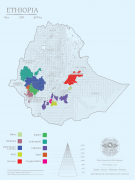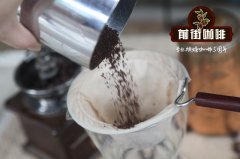How about premium coffee with special treatment in Honduras? Introduction of anaerobic 90-hour fermentation treatment technology

Country of origin: Honduras
Region: Kokkin, Kopan region
Farm: Finca San Rafael- Norma Ellis Fiaros
Altitude: 1350m
Variety: red Kaduai
Processing method: anaerobic fermentation, prolonging fermentation for 90 hours, drying on elevated bed
Bouquet: aromas of cherry liqueur, raisins, dark chocolate, tamarind and flowers.
Finca San Rafael, located in Korkin in the Copan region of Honduras, is one of the most advanced producers in the region. The professional microbatches we got from her are unparalleled. The aroma of anaerobic fermentation is strong and delicate, with aromas of cherry liqueur, raisins, dark chocolate, tamarind and flowers in the cup and hand.
Finca San Rafael is immersed in a pine forest, which greatly helps acidify the soil and gives the coffee a very unique cup shape. In addition, coffee grows completely in the shade and accounts for only a small part of the total land. Coffee is grown using organic farming techniques and has been certified as organic.
After anaerobic treatment, the special micro-batch using only red grape varieties was soaked for a very long time, which was extended to 90 hours. It is then dried on an elevated bed in a manner similar to naturally processed coffee.
The preparation is carried out in the Aruco Co-Op factory, which ensures very high quality standards, so it is the first choice for processing special micro batches. After strict manual picking, the cherries were sent to the mill, where they were washed and selected for the first time. In this way, the immature cherries can be removed immediately. Then put the high quality in an airtight steel drum to create an oxygen-free fermentation environment. Continuously monitor the temperature of each barrel and keep it at about 22-25 °C. After 96 hours, remove the cherries and place them on a raised drying bed, place there for about 25 days, and then turn them every hour until the moisture content drops to about 12%.
Important Notice :
前街咖啡 FrontStreet Coffee has moved to new addredd:
FrontStreet Coffee Address: 315,Donghua East Road,GuangZhou
Tel:020 38364473
- Prev

Introduction of Ethiopian Yega Sheffielia Solar G1 Flavor introduction Beloya treatment Station
Ethiopia Yega Sheffield Biloya Solar G1 producing country: Ethiopia producing area: Yega Sheffield Cochel treatment Station: Beloya Beloya altitude: 1870-2100m varieties: local native species Heirloom treatment method: sun treatment grade: G1 production season: 2020 production area introduces Yega Xuefei is a famous boutique coffee producing area in Ethiopia. In 1995, Ethiopia
- Next

Is Bolivian boutique coffee beans cost-effective? Introduction of Super Flavor of PB Round Bean washed by Caranavi
Bolivia's Caranavi washed round beans are single-origin premium coffee beans from the Sol de laMaana program in the Caranavi region of Bolivia. The coffee is washed and roasted at a medium level. Rich body and citrus acidity. Aromas of sugarcane, litchi, red cherry and toffee and peach. This very special peaberry micro batch is from Sol de l.
Related
- Detailed explanation of Jadeite planting Land in Panamanian Jadeite Manor introduction to the grading system of Jadeite competitive bidding, Red bid, Green bid and Rose Summer
- Story of Coffee planting in Brenka region of Costa Rica Stonehenge Manor anaerobic heavy honey treatment of flavor mouth
- What's on the barrel of Blue Mountain Coffee beans?
- Can American coffee also pull flowers? How to use hot American style to pull out a good-looking pattern?
- Can you make a cold extract with coffee beans? What is the right proportion for cold-extracted coffee formula?
- Indonesian PWN Gold Mandrine Coffee Origin Features Flavor How to Chong? Mandolin coffee is American.
- A brief introduction to the flavor characteristics of Brazilian yellow bourbon coffee beans
- What is the effect of different water quality on the flavor of cold-extracted coffee? What kind of water is best for brewing coffee?
- Why do you think of Rose Summer whenever you mention Panamanian coffee?
- Introduction to the characteristics of authentic blue mountain coffee bean producing areas? What is the CIB Coffee Authority in Jamaica?

